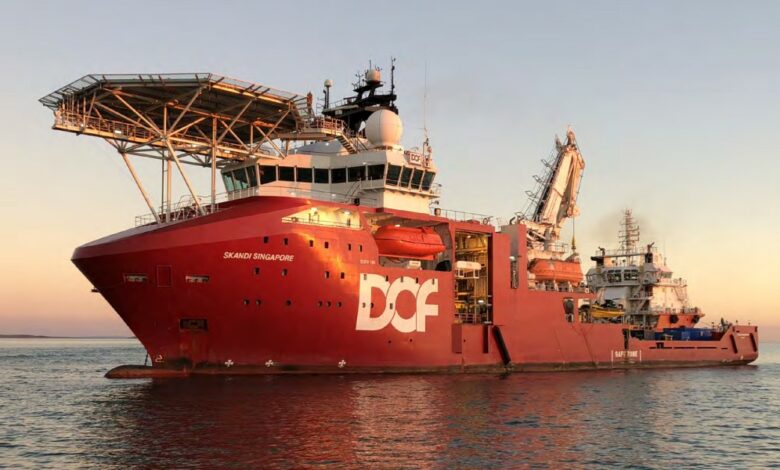DOF, Solstad, Eidesvik partnering with Norwegian Shipowners’ Association in alternative fuels study

The Norwegian Shipowners’ Association has commissioned an analysis of alternative fuels from SINTEF Ocean in association with offshore shipping companies DOF, Solstad, and Eidesvik
The study will analyse and provide recommendations for platform supply vessels (PSVs), anchor-handling tug supply vessels (AHTS), and construction support vessels (CSVs).
The Norwegian Shipowners’ Association is the client, while the three shipping companies will contribute with technical and operational data. The study is expected to be completed in October 2023.
“For the industry to achieve its climate goals, the ships being built today must meet future emission requirements. We believe this analysis will help shed light on issues and provide a foundation for making informed investment decisions,” said Harald Solberg, CEO of the Norwegian Shipowners’ Association.
The study will, among other things, assess a range of technical and practical factors that affect and limit the choice of alternative fuels, including energy consumption, production capacity, technological maturity, and costs of newbuilds and modifications.
The study will be an important piece in realizing the Shipowners’ Association’s climate goals and strategy from May 2020. The strategy involves a goal of cutting emissions by 50% per unit by 2030 compared to 2008. By 2050, the Shipowners’ Association’s members aim to have a carbon-neutral fleet.
According to KonKraft’s latest status report on emission reductions in the oil and gas industry, offshore shipping companies are already well underway in reducing their operational emissions.
Lars Christian Larsen, project manager at DOF, said that several ships being built today are already “alternative fuel ready” meaning their designs are prepared for future conversion to different technologies, such as by allocating space for new fuel tanks and engines.
“With this project, we aim to make it easier for all companies in the segment to invest in zero and low-emission technology. At the same time, our goal is to send a signal that we are pointing to a limited number of energy carriers for our segment, thereby making it clearer for the bunkering infrastructure sector,” Larsen concluded.
